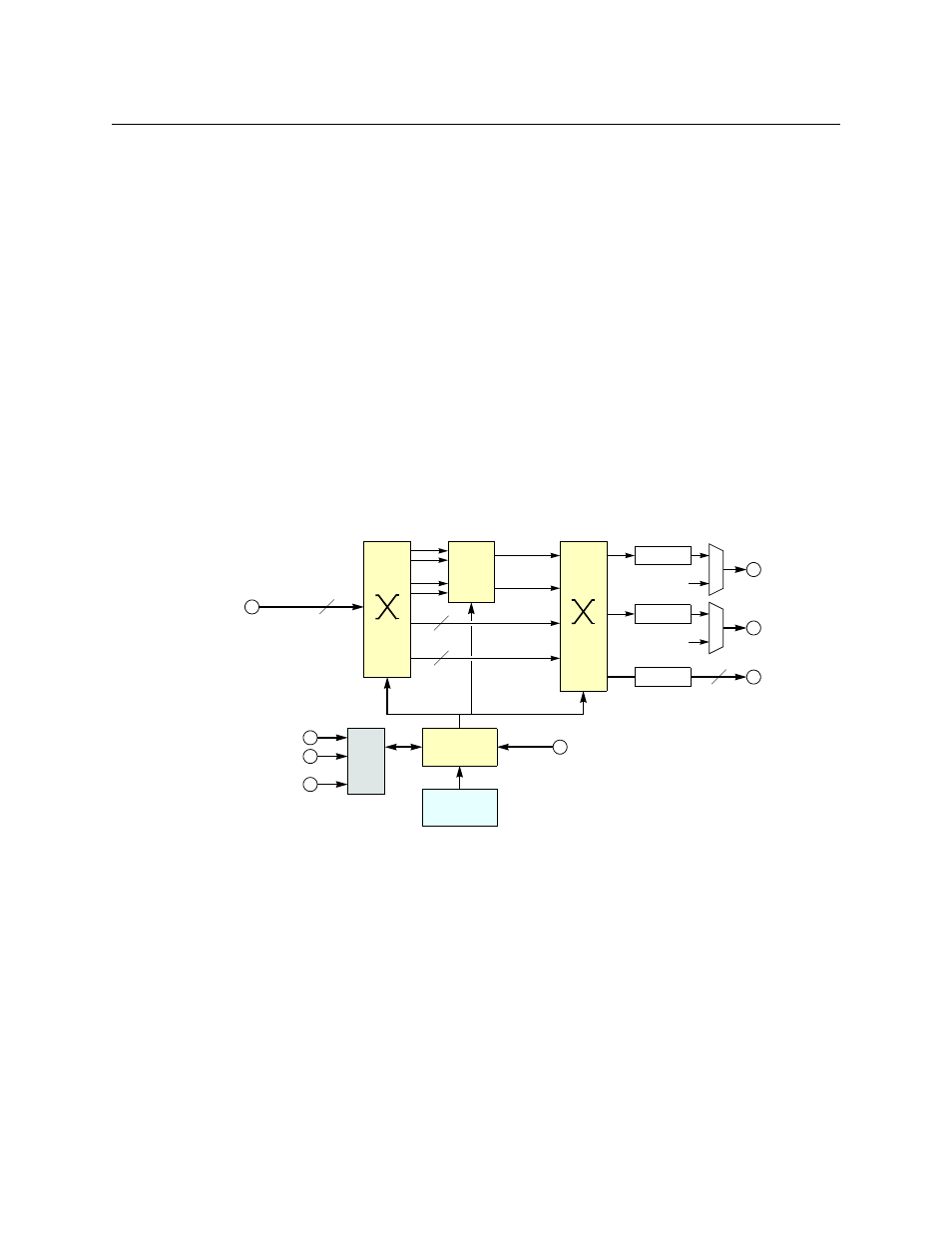Grass Valley CR Series v.3.2 User Manual
Page 26

14
Introduction
Overview
For the SD and HD CQX routers, each input supports video plus 16 embedded audio channels.
The mixer transitions both the video and the audio without artifacts.
The 3Gig router supports both level A and level B of the SMPTE 425M standard. The mixer transi-
tions signals of level A, at 1080p, video and audio without artifacts. It handles level B
—
two
1080i signals in one stream
—
somewhat differently. It mixes the 16 audio channels of “link A”
(from the two inputs) but passes the 16 audio channels of link B (from the two inputs) through
to the output unmixed. “Link B” will undergo a cut transition with possible audio artifacts.
Although audio for Link B is not processed and undergoes a cut transition, video for Link B is
mixed according to the transition type and rate selected on the CQX control panel.
The 3Gig routers do not accept level B’s 2×720p signals at present.
The second crosspoint matrix receives internal signals and produces the CQX outputs 1 and 2
and the 6 auxiliary outputs (which are normal outputs). A multiplexer selects either the clean
output or the emergency bypass input. The emergency bypass input is selected only when
power fails. (The multiplexer is controlled by a relay that switches to its relaxed position when
power fails.)
The router has 16 normal input BNCs, 2 bypass input BNCs, 2 CQX output BNCs, and 6 aux
output BNCs.
Figure 2-19 shows a simplified view of the CQX digital video router:
Fig. 2-19: Block Diagram of the CQX Digital Video Router
The video routers perform input equalization and perform reclocking of outputs. Router
outputs are switched in sync with an external video reference if it is present. The video reference
also provides sync for embedded audio.
All CQX video routers accept bi-level or tri-level video references (sync) and switch according to
SMPTE RP168-2002.
The CQX video routers also provide a bypass path for non-synchronous input signals. If the two
sources chosen for a clean and quiet switch are not of the same format, are off-rate, are not at
the same frame rate as the video reference, or do not meet the timing window (± 3 lines), the
video processor enters non-sync bypass mode where the source signal bypasses the video
processor and goes straight to the outputs. Thus, the clean and quiet output behaves like an aux
output in which there is no video or audio processing
—
with no transition processing. Switches
non-sync
bypass
clean 2
clean 1
Reclock
Em. Bypass 2
CQX 2
6
6
μP
Logic
Inputs
(Equalized)
Aux Outputs
Control
Panel
Video Reference
Serial
Ethernet
(optional)
16
Mix 1
Mix 2
Reclock
Em. Bypass 1
CQX 1
Reclock
GPIO
2
